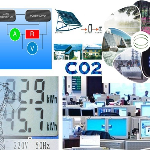Please find below the
Semi-Finalist Evaluation
Judges'' comments
SUBJECT: Your proposal in the Climate CoLab
Proposal: Carbon Credits Market
Contest: U.S. Carbon Price
Thank you for your contest entry. We appreciate your willingness to share your ideas and also the time and effort you put into developing a proposal and submitting it to the contest.
We, the Judges, have strongly considered your proposal and found that it contained intriguing elements; however, we have chosen to not advance it to the next round of competition.
We encourage you to keep developing your idea. Transfer your proposal to the Proposal Workspace to re-open it, make edits, add collaborators, and even submit it into a future contest. You can do so by logging into your account, opening your proposal, selecting the Admin tab, and clicking “Move proposal”.
We welcome you to stay involved in the Climate CoLab community: support and comment on proposals that have been named Semi-Finalists and finalists, and even volunteer to join one those teams if you have relevant expertise. During the voting period, you can help select the contest’s Popular Choice Winner. The Climate CoLab will be opening more contests in the coming months, and you are welcome to submit your proposals to those contests as well.
Keep up the great work. We hope that by working together, we all can create solutions that wouldn’t otherwise be possible.
2015 Climate CoLab Judges
Further comments:
This proposal suggests a carbon credit market. For there to be a market, there must be supply and demand. This proposal is unclear about the precise sources of supply and demand, and indeed what would be traded.
Why would private capital markets fund such a program? What would drive demand for the credits?
The most sensible interpretation of this proposal would describe it as a market in renewable energy credits, for example as a result of a federal renewable portfolio standard.
One limitation of that approach is that it provides no incentive to switch fuels from coal to natural gas, for example. So it is not directly a price on carbon. It is also worth mentioning that calling for decarbonization in 5-10 years is politically unfeasible.
The incorporation of other nations is interesting and certainly needed, however, it would be difficult to see a global system that would choose to rely on a US regulator.
Also, only about 1/3 of US emissions come from the electricity sector. Would this proposal leave other sectors unaffected?
No comments have been posted.
